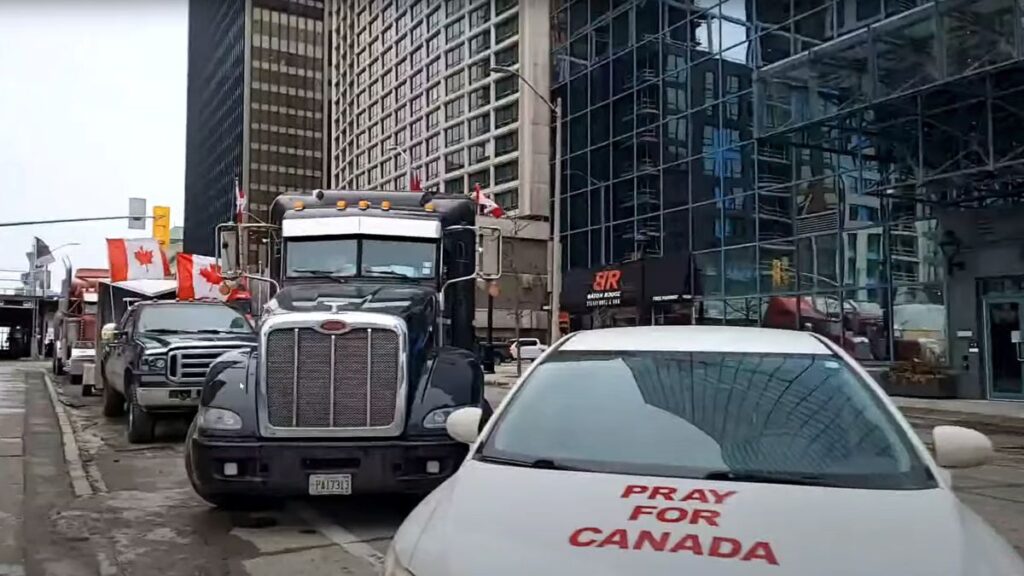
WINDSOR, Ont.—More protesters gathered by the Ambassador Bridge border crossing in Windsor on the evening of Feb. 11 compared to nights before, despite a court injunction to clear the blockade at the Canada-U.S. border.
Many protesters, who are demonstrating against COVID-19 mandates and restrictions, left the area as it got late into the night, but some still remained past midnight.
Sam Helou, a Windsor resident who owns a parking lot close to the border crossing, says government’s COVID-19 measures have been detrimental to small businesses.
“They only care about big businesses, big corporations’ profits. What about the tens of thousands of people who lost their jobs because of these mandates? Enough is enough,” he said in an interview at the site of the protest on Feb. 11.
“Let’s open up our economy and bring back the jobs and our freedoms.”
Sandy Gill, a real estate agent from Vancouver, brought her children to the protest.
“It’s not about vaccinated versus unvaccinated. It’s nothing like that. We’re not dividing Canadians. We’re talking about everybody should have a right to choose. This is freedom of choice,” Gill said.
“I’m glad that this convoy stood up at the right time, and we’re really supporting them.”
Earlier on Feb. 11, the Ontario Superior Court granted an injunction to prevent the protesters from blocking the border crossing.
Protesters have been blocking the crossing, which connects Windsor to Detroit, since Feb. 6.
The court injunction came into effect at 7 p.m on Feb. 11.
Also on Feb. 11, Ontario Premier Doug Ford announced that the province will be in a state of emergency due to the ongoing protests in Windsor and Ottawa.
The declaration includes giving authorities more powers to deal with any blockages in 400-series highways, airports, ports, bridges, and railways, Ford said.
By Lisa Lin








